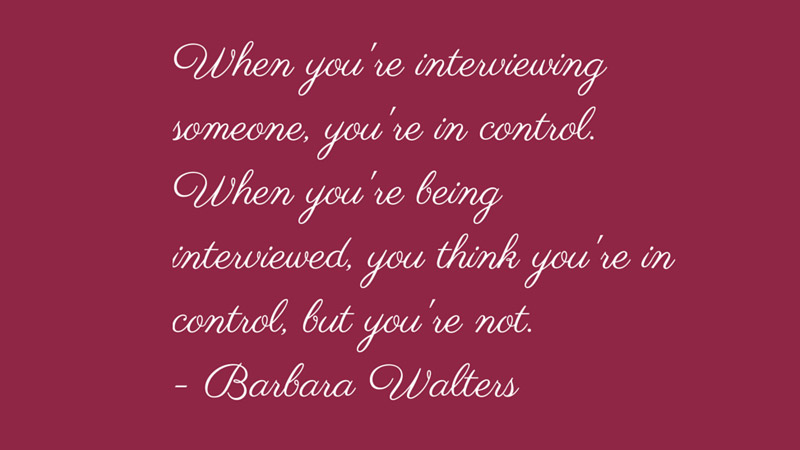Administrative assistant interview questions can be difficult to prepare for. Because administrative assistant duties are so varied, the questions can fall anywhere on the interviewing spectrum, from general work styles to software-specific queries. It’s important to be prepared for all kinds of questions, whether you’re answering phone interview questions, in-person, or filling out a questionnaire as part of an application. Understanding the types of questions that can be asked in different situations, and how to handle each one can help you nail the administrative assistant interview.

Typical Phone Interview Questions and How to Prepare
Phone interviews are a way for hiring managers to determine whether they want to bring you in for a face-to-face interview. While not all companies perform phone interviews, many do, and you won’t know until your phone rings. When you see a number on your caller ID that you don’t readily recognize, put your game face on! Answer the phone in a pleasant, polite, and professional manner, and be ready for a hiring manager to be on the other end of the line.
While it is rare for a candidate to be hired or extended an offer over the phone, you should still treat a phone interview with the utmost importance. Stand up, walk around, and smile when you speak. Because the other person can’t see you, your tone of voice becomes your professional appearance. Smiling while speaking and exuding energy will help you come across as pleasant with a can-do attitude and a positive demeanor.
Phone interviews tend to be a more general discussion of a person’s previous work history, experience, and duties. Typical phone interview questions may include:
Tell me about yourself. Although this isn’t a question, it’s designed to get you to talk about your education, work experience, and other activities. This open-ended statement is meant to make you talk about yourself with relation to your resume. This is also arguably the most important monologue you could have during the phone interview; if your verbal statements don’t align with the written claims on your resume, you may be nixed due to “inconsistency.” Get your story straight, keep it clear, easy to follow, short and sweet. You don’t want to ramble on and on about your life, but you want to give a hiring manager enough information to make an informed assessment of your background. We highly recommend writing down a few key points to get yourself started (but never take this list with you on an in-person interview!)
What is your proficiency level with Microsoft Word? (Or Excel, Quickbooks, Outlook, CRM, whatever.) The interviewer wants to be sure you are proficient with a particular software or program because it is an integral part of the job. Hopefully, you’ve read the job description, and can provide more color to your answer. For example, if the job description states, “Creates complex slide presentations,” talk about specific techniques within PowerPoint that you are proficient in, such as animations, themes, and importing information from an Excel spreadsheet.
Situational Interview Questions and How to Prepare
Particularly during an in-person interview, always be prepared to answer situational interview questions. Situational interview questions are designed to show how a candidate would assess a situation that would happen on the job and provide solutions. For administrative assistants, answers to these types of questions are very important because no two days are ever alike; situations in the admin world are constantly changing, and being able to handle that constant change with grace and poise is of utmost importance.
To prepare for situational interview questions, think about challenges you’ve faced in your previous roles. Was there a particularly difficult peer you had to interact with? Did you supervise any other assistants or receptionists? How did you handle multiple priorities at once? Thinking about your day-to-day responsibilities will help formulate responses. Have a friend or family member ask you about your duties and practice answering the questions in a diplomatic, professional manner.
Situational interview questions may include:
Tell me about a time when priorities suddenly changed. How did you handle it? Administrative assistants live in a constant state of organized chaos. Managing other people’s schedules means dealing with inconsistent, uncontrollable variables. Priorities change constantly in the admin world, and the ability to reprioritize is just as important—if not more so—as prioritizing well the first time around. Hiring managers want to know you won’t fold under pressure and that you can handle these situations calmly.
Have you ever implemented a change that made a difference? The short answer to this question is always a resounding, “Yes.” Administrative assistants, receptionists, office managers, executive assistants—basically anyone in a supporting role—has made a difference in their job in one way or another. Change can be anything from brewing a pot of coffee first thing in the morning to make arriving at the office a bit easier for everyone, to implementing a new system for inputting information into the company’s CRM which eliminates double entry and ultimately saves time. No task is too small or too big for admins, and with this question, hiring managers are looking to see how flexible you are, how much of a team player you’re willing to be, and how far you’ll go to make office life easier.
Other Commonly Asked Interview Questions
Here are a few more commonly asked administrative assistant interview questions to think about in preparation for your next interview:
- How do you handle stress and pressure?
- How do you stay organized?
- Describe a project that involved a lot of detailed work. How did you manage it and what steps did you take to make sure it was executed properly?
- Tell me about a time you made a mistake.
- Why do you want to work here?
Above all, it’s important to properly prepare for your interview and the types of questions that may come your way. The best way to do that is to practice. Create an elevator pitch for yourself, think about what attributes you have that set you apart from other administrative assistants, and think about the type of role you would be happy in. Interviews are conducted to be sure that you possess the skills required to be successful in the role, the demeanor necessary to fit in well with the company’s culture, and the essential drive to succeed with the company going forward. Above all, sell yourself to the hiring manager. Convince them you can do the job (because you can!).
Have you been faced with hard-to-answer interview questions? What were they? How did you respond? Let us know in the comments section below!







